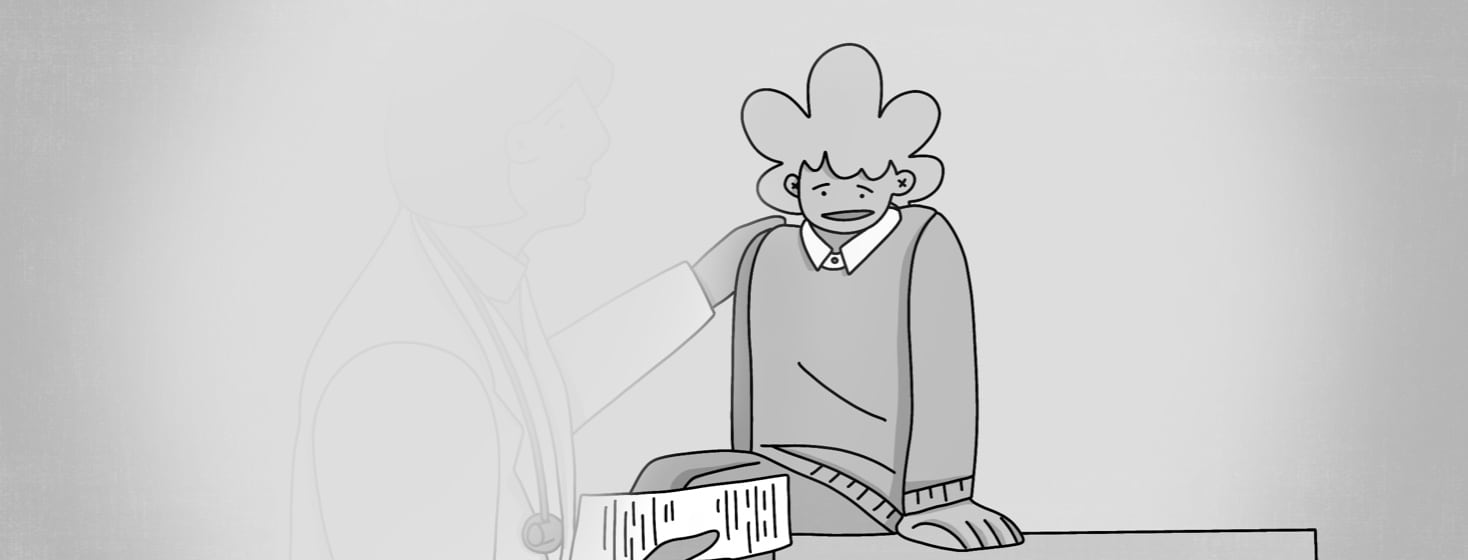The Case of the Disappearing Health Professional
In recent years, I’ve experienced it — disappearing health professionals. One minute they are all in: "Yes, we got this. We know you have additional challenges, but we are in. We can do this!"
The next minute, it's crickets. Or ghosting. Abracadabra! It’s the disappearing act.
Non-responsive health professionals
Before the pandemic, I was seeing a specialist physician out of pocket. My insurance wouldn’t cover it, but I was determined to get the care.
I paid for monthly visits for more than a year. I also saw a special physical therapist working with this doctor (which was a pain to travel to and not so helpful, plus also out of pocket).
Then the pandemic hit, and all these appointments stopped. I was already frustrated by the lack of progress and paying a lot of money. But I thought I would keep going if, in the long run, it would help.
When the doctor emailed me last summer to check-in, I was just recovering from COVID-19 and told him about how I was doing. He never responded. The physical therapist never followed up on my requests to schedule an appointment.
Disappearing when the going gets tough
Then, I got angry. I didn’t need to spend my precious time and money on these knuckleheads. I wasn’t getting anywhere with them, despite all my efforts.
This kind of behavior is the opposite of professional! And they have the nerve to disappear like a darn ghost when calling themselves caring, health professionals?
It’s mighty convenient to disappear on me when the going gets tough. It’s the easier, lazy route.
It’s also most assuredly easier to do during a global pandemic when I can’t hunt you down at your office. Lastly, it’s cowardly and cruel to do to a patient during a very difficult time like a pandemic.
I can’t ghost myself
Here’s the bigger problem. I can’t ghost myself! These knuckleheads may be able to stop responding to me and pretend I no longer exist, but I can’t; I still have rheumatoid arthritis (RA) and related disabilities.
I still need to take care of my health as best as possible. None of my problems go away or can be successfully ghosted. I am still here, even if they run away.
Disappearing is no way to treat patients
I’m concerned that the disappearing act is an increasingly popular practice by health professionals in dealing with challenging (not easy to cure or solve) health cases.
Our 87-year-old neighbor was ghosted by her doctor during the pandemic. She hadn’t spoken to him in over a year. She’s not always easy to deal with, but she deserves good health care as we all do.
A basic response isn't too much to ask for
No one deserves to be the victim of ghosting, especially patients from their healthcare professionals. It’s been a hard time for everyone.
I know personally that I have worked very hard to exercise, eat right, and stay as safe as possible during the pandemic. I don’t think it’s too much to ask for a basic response or a bit of follow up.
Fear or disappearing doesn’t result in good health care
In my case, I truly believe that my significant RA, disabilities, and complex health history had them packing and running as soon as there was a weak excuse.
I’ve had many experiences before of people in health care being afraid to treat me.
Yet, fear or disappearing doesn’t result in good health care. Surprisingly, engaging and being persistent actually have resulted in health progress for me!
"I can’t handle this"
It would have been more honest and professional if they would have just told me outright, "I can’t handle this." I’m a grownup and can take the truth. In fact, other doctors have quit me before like this. I would have agreed and moved on.
Ghosting is never the solution because it leaves the patient in the lurch. Thankfully, I’m a tough nut and just never (ever) give up.
I’m finding other ways to fill the void because there is no such thing as ghosting on myself.

Join the conversation